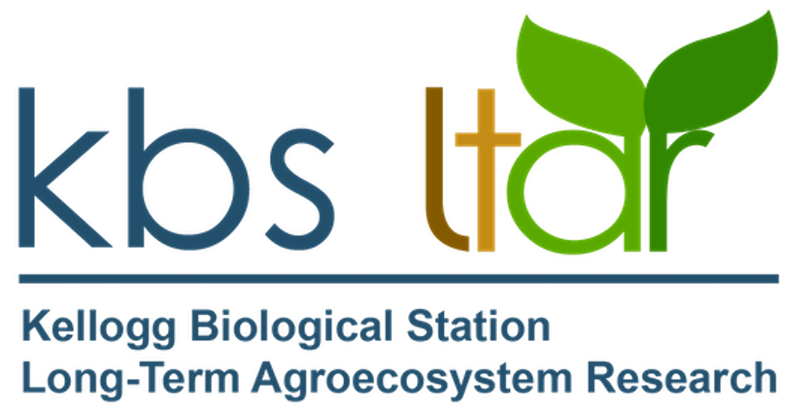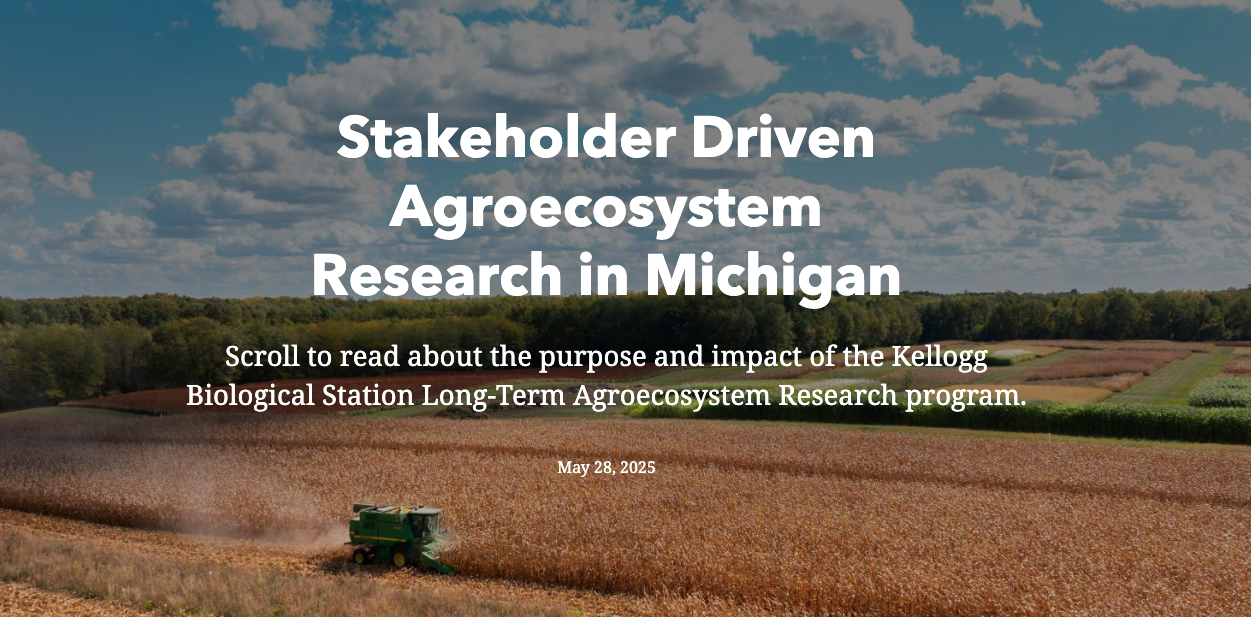 The Kellogg Biological Station (KBS) Long-Term Agroecosystem Research (LTAR) site is part of the U.S. LTAR Network established by the USDA to develop national strategies for the sustainable intensification of agricultural production. LTAR is a partnership among 18 long-term research sites across the U.S.
The Kellogg Biological Station (KBS) Long-Term Agroecosystem Research (LTAR) site is part of the U.S. LTAR Network established by the USDA to develop national strategies for the sustainable intensification of agricultural production. LTAR is a partnership among 18 long-term research sites across the U.S.
At KBS, we are helping to meet future sustainability challenges for cropping systems of the upper Midwest. Our research is designed with stakeholders to advance both food production and positive environmental and societal outcomes for agriculture.
Click on the thumbnail below for an overview of how KBS LTAR engages stakeholders in research and outreach activities.
News from LTAR
-
Unravel regenerative principles in this upcoming webinar series
Published on January 26, 2026
This webinar series offers practical insights and science-based strategies to navigate different aspects of regenerative principles. -
KBS LTAR 2026 Highlights - Read Our Newsletter
Published on January 22, 2026
The 2026 KBS LTAR Newsletter highlights new results from the Aspirational Cropping System Experiment showing that the profitability gap with business-as-usual systems has narrowed, with some crops outperforming conventional practices. -
Insights from Michigan agricultural professionals to advance farm conservation
Published on November 12, 2025
Through focus groups and surveys, a new MSU Extension report outlines some priority questions agricultural, conservation and agribusiness professionals in Michigan have about conservation practices. -
New MSU project: How agricultural production might be improved by solar panels to be studied
Published on November 11, 2025
An article by Michigan Public showcases Anthony Kendall's work to fund solar panels in the KBS LTAR. -
Winter canola planting progress across Michigan
Published on October 21, 2025
Canola planting kicks off in Michigan! Read more for updates from the field on canola crop progress, insect pests and crop disease.









 Print
Print Email
Email